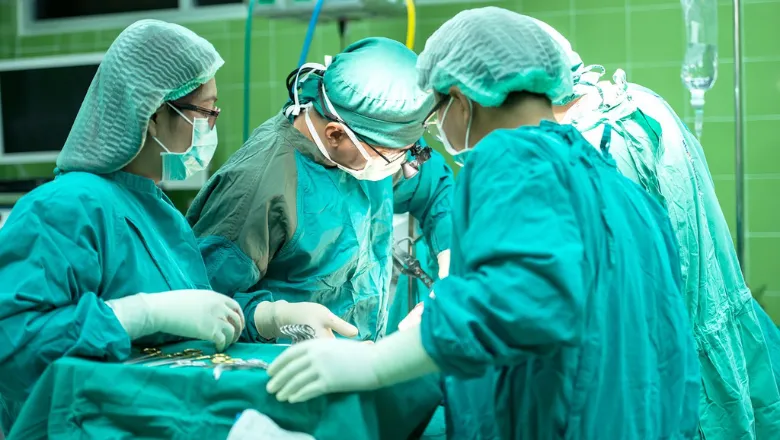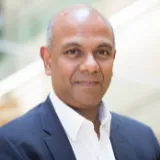“A decade on from the first Lancet Commission on Global Cancer Surgery the dial has only slightly moved. The global community has still not stepped up to addressing this critical cancer domain. Research funders continue to underinvest, and global cancer initiatives continue to focus on cancer medicines. This imbalance is fundamentally eroding our ability to deliver affordable, equitable and high-quality cancer care.”
Professor Richard Sullivan, Professor of Cancer and Global Health at King’s, Director of the Institute of Cancer Policy and Co-Director of the Centre for Conflict & Health Research
01 November 2023
2023 Surgery Commission offers solutions to improve cancer surgery outcomes
King’s academics have collaborated with researchers, doctors and surgeons to make eight recommendations to help improve cancer surgery outcomes across the world.

This report follows the 2015 Lancet Oncology Global Cancer Surgery Commission led by Professor Richard Sullivan and Professor Arnie Purushotham from the Faculty of Life Sciences & Medicine, which estimated that more than 80% of people diagnosed with cancer in 2015 would need surgery during their treatment, yet in some parts of the world, nine out of 10 people could not access basic surgical care.
With the number of cancer diagnoses and subsequent demand on medical services expected to increase, the new Lancet Oncology Commission has recommended solutions to help reduce inequalities and promote affordable cancer surgery for patients worldwide.
Professor Richard Sullivan, who has led six Lancet Oncology Commissions, explained that nearly a decade later, it was clear that global health calls for action in surgery have not leveraged the international response that was needed, prompting this new report.
Intended for leaders, administrators, officials and health policy advocates, the report presents solutions in nine domains specific to the six World Health Organisation (WHO) regions, from which the experts developed eight actions to drive improvements for cancer surgery across the globe.
The eight actions recommend:
- Make cancer surgery available, accessible and affordable
- Train the next generation of cancer surgeons
- Promote cancer surgery research
- Develop a skilled cancer surgery workforce
- Implement principles of patient safety, quality improvement and value-based care
- Encourage continuous professional development
- Promote wellbeing across the cancer surgery workforce
- Establish cancer surgery delivery platforms in the event of global catastrophic events
The paper, Global Cancer Surgery: pragmatic solutions to improve cancer surgery outcomes worldwide, is published in The Lancet Oncology Commission online.


